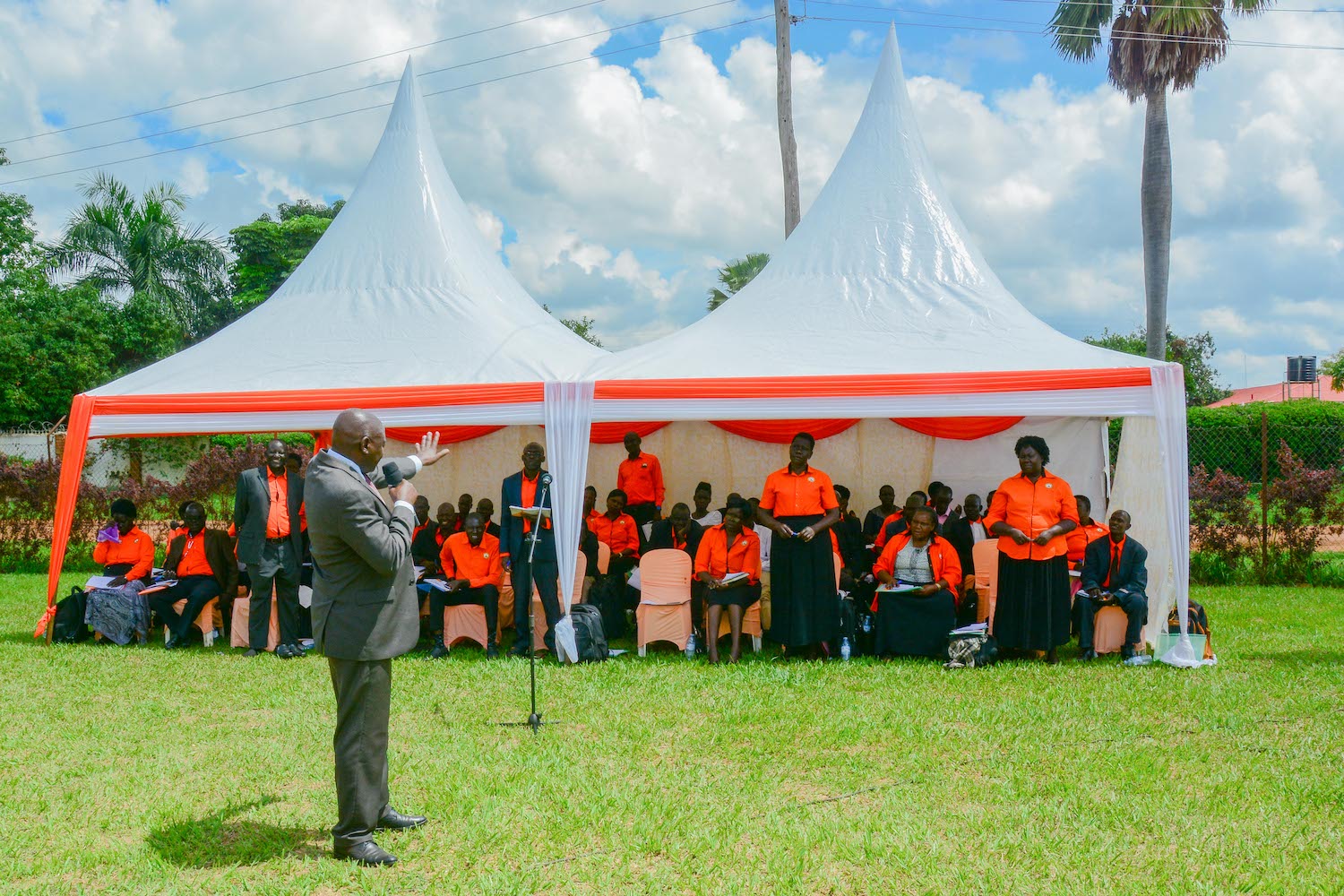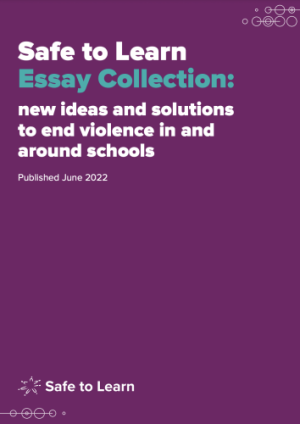
A teacher’s role in children’s lives can be transformative. On the frontline of our education systems, the direct influence of teachers on students can be a key factor in their well-being, and their efforts can be instrumental in protecting children from the violence in and around schools that affects hundreds of millions of children every year.
One educator making a difference in his classrooms and beyond is Mr Baguma Filbert Bates. Having witnessed and admittedly partaken in violence in schools, and realising the devastating impact of this violence through his own journey in the education system, Mr Bates is now dedicated to bringing systemic reform with and through teachers.
Ahead of the International Day against Violence and Bullying at School, which this year focuses on the instrumental role of teachers in ending violence, the Safe To Learn global initiative spoke to Mr. Bates about his journey and solutions for how teachers can make a difference.
“I was once a perpetrator of violence in school and l didn’t envisage the extent of the damage it had on the teaching-learning environment and the learners in particular. Corporal punishment – or violent forms of discipline – was the violence I engaged in.” he shares.
“Children have dropped out of school, they live in depression, they are not secure, have poor anger management, developed poor social skills and even violent extremism. From the time I got enlightened [to the issue], I became an ambassador of safe learning environments and violence-free schools.”
He now wants to see an end to corporal punishment and all the other forms if violence children face in and through schools.
“Forms of violence in schools which I would like to see end are school-related gender-based violence, bullying and teasing, use of abusive and vulgar language, child abuse, sexual violence, psychological violence.”
An inspiring educator, Mr Baguma Filbert Bates is the General Secretary of Uganda National Teachers’ Union (UNATU). He was, in fact, one of the brains behind the founding of UNATU in 2003 and has been instrumental in boosting the Union’s growth to the heights it stands at today.
“I became a teacher through the admiration of my Grandfather who was a teacher. I became a teacher because I wanted to help children to be better citizens through the school system because I used to sympathise with innocent children who had no access to education,” he said.
Mr. Bates has been actively involved in both teaching and education development work across Union, National and Regional levels. He represents Education International on the Safe to Learn Global Advocacy Taskforce and represents UNATU on the National Public Service Negotiating and Consultative Council. He has previously worked as a primary school teacher and a Head Teacher and holds a Masters’s Degree in Education Management.
Throughout his now 25-year-long career, he has found effective approaches that teachers use at the school level to prevent, identify and address violence. These have included innovative solutions:
“The creation of families in a school between teachers and students, or the formation of clubs like Peace Lovers club whose membership is the Peace ambassadors in the school. The use of music, dance and drama where the themes are designed to show the dangers of violence in and around school, role plays on the negative effects of violence in and around school and peer-to-peer sensitisation about violence in and around schools. Weekly assemblies specifically on violence in and around school.”

Earlier this year, he shared actionable best practices on how teachers can foster safe learning environments through positive discipline and what is needed for them to do so in the Safe to Learn Essay Collection, lending his expert perspective to a holistic series of insights into the issue of violence in and through schools.
He shared with us some of the most effective approaches he has seen teachers and schools could deploy to help change harmful social and gender norms around violence beyond the school gates.
“Teachers taking the campaign against violence in and around school or to the prayer places on designated days, requesting church leaders to give them some time during prayers. Sending children to their homes and communities to always talk about the dangers of violence in and around school. Inviting media during Parents Teachers Association general meetings where violence in and around school is on the agenda is another practice” are among some of the proactive ways to engage, he stated.
“Over even things like composing songs about violence and training learners who of course take them to the communities and as they sing them, the communities are picking the message and in turn some take the message seriously thus changing their ways.”
His call to action for what more can be done to drive forward reform in education systems to ensure all teachers and students are able to work and learn in an environment free from violence is to include ending violence in our curricula and education structures.
“There is a need for the governments through curriculum development centres to include peace education, prevention of violence and management of conflicts in their curricula. We need to develop structured sessions of Continuous Professional Development on prevention of violence in and around schools and creation of safe learning environments.”
You can read more about his insights and solutions in his essay ‘Positive discipline: the tools and resources required by teachers’ in the Safe to Learn Essay Collection.

